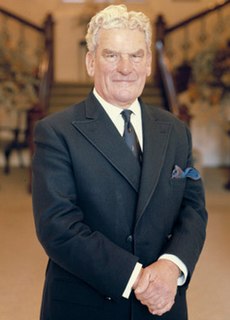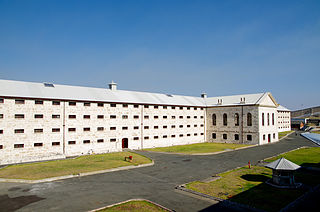
John Septimus Roe was the first Surveyor-General of Western Australia. He was a renowned explorer, and a Member of Western Australia's legislative and executive councils for nearly 40 years.

James Wilson(Séamas Mac Liammóir) was a Fenian who was transported as a convict to Western Australia.

Tommy Windich was an Indigenous Australian member of a number of exploring expeditions in Western Australia in the 1860s and 1870s.

SS Georgette was a steamship built in 1872. She is best known, especially in Irish-American circles, for the part played in the story of the Catalpa rescue in April 1876. While the events surrounding her shipwrecking eight months later are dramatic and did capture the imagination of the local press, the ship itself had little effect on the coastal trade. Though heralding the way forward in the change from sail to steam on the long Western Australian coast, like its predecessor SS Xantho, Georgette had a short and ill-starred career and sank soon after its arrival there.
William Goldwyer was a police officer and explorer in colonial Western Australia. While exploring in the Kimberley region of Western Australia in 1864, he was killed by Australian Aborigines.
Frederick Kennedy Panter was a police officer, pastoralist and explorer in colonial Western Australia. While exploring in the Kimberley region of Western Australia in 1864, he was killed by Australian Aborigines.

South Western Highway is a highway in the South West region of Western Australia connecting Perth's southeast with Walpole. It is a part of the Highway 1 network for most of its length. It is about 406 kilometres (252 mi) long.
The Pinjarra Massacre, also known as the Battle of Pinjarra, was an attack that occurred at Pinjarra, Western Australia on a group of up to 80 Noongar people by a detachment of 25 soldiers, police and settlers led by Governor James Stirling in 1834. After attacks on the displaced Swan River, Whadjuk people and depredations on settlers by a group of the Binjareb people led by Calyute had, according to European settlers, reached unacceptable levels, culminating in the payback killing of an ex-soldier, Stirling led his force after the party. Arriving at their camp, five members of the pursuit party were sent into the camp to arrest the suspects; Whadjuk community resisted. In the ensuing melee, Stirling reported 15 killed ; police superintendent Theophilus Tighe Ellis later died of wounds and a soldier was wounded. Stirling warned the tribe against payback killings an arranged a peace between the warring tribes, but Calyute continued to break it by raiding the Whadjuk until his demise.
Denis Bambrick Cashman was an Irish political prisoner and diarist who was transported to Western Australia due to Fenianism and wrote of his experiences in a diary.

The South Western Railway is the main railway route between Perth and Bunbury in Western Australia opening in 1893.

Sir Duncan Ross McLarty, was an Australian politician and the 17th Premier of Western Australia.
The following lists events that happened during 1876 in Australia.
Charles Edward Dempster was a politician in Western Australia, serving two terms in the Legislative Council—as the member for the seat of Toodyay from 1873 to 1874, and as one of the three East Province members from 1894 until 1907. A farmer and grazier by trade, he was also one of the first European explorers of the Esperance district as well as a councillor and chairman on the Toodyay and Northam Road Boards for many years.

Western Australian Government Railways railway system during its peak operational time in the 1930s to 1950s was a large system of over 4,000 miles of railway line.
Joseph Denis Nunan was an Irish born patriot and builder transported to Fremantle for wounding a policeman. He became an architect and building contractor involved in significant buildings in Perth, Fremantle and York. He never gave up his Fenian beliefs and died before he could return to Ireland.
John Pollard McLarty was an Australian politician who was a Liberal Party member of the Legislative Assembly of Western Australia from 1904 until his death, representing the seat of Murray.






















